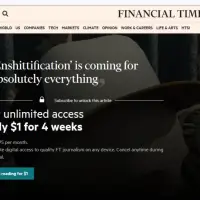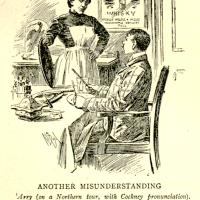 I first discovered audiobooks while taking graduate courses by distance in Japan. I received these world-class lecture packages in the mail, pulled the cassette out of its cellophane wrapper (yes, a tape!), and then popped it into my car’s tape player. These lectures filled my commutes in Japan, from the rice paddies of Asashina-mura with old farmer wives knee-deep in water, crooked backs bending to plant tender shoots of grain, through the Miyota river valley filled with its onion fields and cherry blossoms and Coca Cola vending machines, to the mountaintop tourist village of Karuizawa–a hidden paradise of pine trees and ancient roads and large families of monkeys that wandered across your path. Glad to leave behind J-pop on the radio, and tired of the mixed tapes I brought across the Pacific, I listened to lectures on theology and literature.
I first discovered audiobooks while taking graduate courses by distance in Japan. I received these world-class lecture packages in the mail, pulled the cassette out of its cellophane wrapper (yes, a tape!), and then popped it into my car’s tape player. These lectures filled my commutes in Japan, from the rice paddies of Asashina-mura with old farmer wives knee-deep in water, crooked backs bending to plant tender shoots of grain, through the Miyota river valley filled with its onion fields and cherry blossoms and Coca Cola vending machines, to the mountaintop tourist village of Karuizawa–a hidden paradise of pine trees and ancient roads and large families of monkeys that wandered across your path. Glad to leave behind J-pop on the radio, and tired of the mixed tapes I brought across the Pacific, I listened to lectures on theology and literature.
My wife didn’t always like it, but by the time I sat down to “attend” the lecture with notebook open at my kitchen table, I had a sense of where the lecturer was going. And when I was ready to write the exam, I listened again, fast-forwarding the bits that I had now nearly memorized. I loved it.
 Lectures were the slippery slope for me. I began picking up bargain bin audio fiction, and we would listen to novels on our long trips through the peaks and valleys of Japan or the great expanse of the North American continent. Sometimes our stories came from CBC or NPR or the military radio from the Kanto Plains. Usually, though, we found our stories in bookstores and yard sales and libraries, and most recently from iTunes and Audible. These stories have accompanied us through 10 Canadian provinces, 29 American states, and 12 Japanese prefectures. Despite my wife’s wishes, however, we haven’t yet been to Rome.
Lectures were the slippery slope for me. I began picking up bargain bin audio fiction, and we would listen to novels on our long trips through the peaks and valleys of Japan or the great expanse of the North American continent. Sometimes our stories came from CBC or NPR or the military radio from the Kanto Plains. Usually, though, we found our stories in bookstores and yard sales and libraries, and most recently from iTunes and Audible. These stories have accompanied us through 10 Canadian provinces, 29 American states, and 12 Japanese prefectures. Despite my wife’s wishes, however, we haven’t yet been to Rome.
Soon I realized that I had this space in life that I could fill with stories. So I have become, by small steps over years, an avid audiobook reader. I still listen to a lot of lectures–you can get whole courses free from iTunesU or at a small price from schools like Regent College. But I mostly listen to stories, or to ideas books that I’ve already read.
I am not alone. The audiobook market is a huge development, as people are anxious to put something worthwhile on their iPhones as they walk, job, build, plant, or drive. In my hunt for good books, I have come across 6 surprising celebrity audiobook narrators you should know about (and a couple of not so surprising ones).
 1. Virginia Woolf’s To the Lighthouse, read by Nicole Kidman
1. Virginia Woolf’s To the Lighthouse, read by Nicole Kidman
Most will know Virginia Woolf for her classic novel, Mrs. Dalloway, or her brilliant pseudo-lecture, A Room With a View. Of Woolf’s fiction, though, it is To The Lighthouse that really drew me in. This story of a matriarch in the 1910s haunts me months after I first read it. Even though the protagonist dies during WWI, she continues to delicately structure the lives of all of the children and adults that are part of her household.
We do have some recordings of Virginia Woolf’s own voice, and librivox.org has some volunteer recordings of her work. Among the professionally produced versions of To The Lighthouse includes one read by Nicole Kidman. Here Kidman explains why she, of all people, would go through the labour-intensive project of reading this book:
She likes Virginia Woolf, and loves this book, but Kidman has also played Virginia Woolf in The Hours. I was blown away by this film when I saw it: it is a sophisticated way of capturing Woolf’s biography and literature all in one. But as I watch the trailer, having now read Woolf, I wonder if they’ve interpreted her well.
Nicole Kidman is a beautiful and talented actress. Her unusual beauty is deliberately lost in her stunning performance as Woolf. Unfortunately, some of the energy that she brings to the screen is lost in this reading. But it is a great way to reread this essential book.
 2. Jack Kerouac’s On The Road, read by David Carradine
2. Jack Kerouac’s On The Road, read by David Carradine
That’s right, David Carradine. If you are a bit older, you’ll know him as Caine. People in my generation will know him from Kill Bill, a complex and intricately sketched film of revenge without redemption where Carradine’s character echoes his iconic Kung Fu role. If anyone doubted it from his selective acting history, David Carradine is a storyteller. Here’s his performance of The Legend of Pai Mei from Kill Bill:
If you think it is odd that the Kung Fu icon of a generation is reading a beatnik story of life on the road, listening to just a few minutes of the book on tape will change your mind. This book formed a generation; it is American mythology. So it takes a mythic figure to do it justice. It must be done by a poet–you can hear Jack Kerouac read a bit himself here–because it is not just poetry that has been created, but a poetry that creates. David Carradine’s abridgement is far too short. How can you pull any of those lines from the text? But if it has to be read by anyone, it should be him, or it will descend into a farce.
 3. The New Testament, read by Johnny Cash
3. The New Testament, read by Johnny Cash
My father-in-law is laid up in the hospital, and doesn’t sleep well to begin with. Dripping taps and overhead pages and 32 snorers within an arm’s throw doesn’t help.
So I bought him an inexpensive MP3 player and sat at my computer trying to decide what I might load on it. Believe it or not, I have no Hank Snow or Ricky Skaggs. I put a couple of Louis Armstrong songs on, but passed on Muddy Waters. I decided I would ask him about the Beatles (I have everything, pretty much), and searched for Johnny Cash–his Best Of, as well as his Folsom Prison album. Loading Johnny Cash gave me a crazy idea.
After a brief search, I ordered the mp3 for “Johnny Cash Reads the New Testament.” Cash’s voice is pretty impressive, and he reads the entire New Testament, beginning with genealogy and prophecy in Matthew, and ending with the renovated earth and prophecy fulfilled in Revelation.
It took a bit to teach him to use the device, but he found his way. On the first night he struggled sleeping, so he put on Johnny Cash’s rich voice, and listened all night long to the Man in Black read about the Son of Man.
He dozed at points, he thinks, but awoke this morning to hear of a dragon with seven heads! Quite a night. I don’t know if he will levitate in holiness, or shoot a man in Vegas just to watch him die. We’ll see. But Johnny Cash stands next to James Earl Jones as one of the great Biblical voices.
 4. Franz Kafka’s The Metamorphosis, read by Benedict Cumberbatch
4. Franz Kafka’s The Metamorphosis, read by Benedict Cumberbatch
It’s hard to name any actor more popular among lit-loving TV-watchers than Benedict Cumberbatch. I can no longer imagine Sherlock Holmes as anyone else, though I’m still attached to Ricardo Montalbán as Khan, but I suppose we must all learn and grow.
Apparently, when he isn’t busy destroying dwarf kingdoms and being a self-obsessed crime solver, he reads books. Out loud, I mean. I’ve heard that he is going to read Sherlock, but I haven’t seen any of them yet. He did, however, read the mental-bending Metamorphosis by Franz Kafka. Here is part 1:
And, as a special bonus, you can see Kafka summoned a generation later on in Jonathan Goldstein’s “Wiretap,” where Samsa corresponds with Dr. Seuss about his transformational experience. You can listen to this hilarious skit here (beginning about 5 minutes in).
 5. Cornelia Funke’s Dragon Rider, read by Brendan Fraser
5. Cornelia Funke’s Dragon Rider, read by Brendan Fraser
Brendan Fraser is my definition of a bohunk: great jaw, good physique, and a dangerous lack of functional intelligence. So it was surprising when I put in a library CD of Dragon Rider for a family drive, and I had a growing suspicion that it was Brendan Fraser speaking to me. I shuddered a bit, and then settled in for an enjoyable ride.
As it turns out, Brendan Fraser is pretty good at this. He creates fun and engaging voices for literally dozens of characters as the dragon and his wards fly through Europe and the Maghreb into Central Asia. When he uses his own voice and accent, waves of cheesy film roles threaten to overtake the story. It is not a very precise recording; his accents slide from speaker to narrator. But for the most part, he is a great reader for this children’s fantasy novel.
 6. C.S. Lewis’ The Screwtape Letters, read by John Cleese
6. C.S. Lewis’ The Screwtape Letters, read by John Cleese
Let’s be honest: as soon as you hear that Monty Python’s great liege, John Cleese, reads The Screwtape Letters, it all falls together. The voice is perfect: a pretentious prig speaking the Queen’s English as he launches condescending lectures at a sniveling and resisting student. Screwtape is a pedant, and who can play it better than Cleese?
Alas, this Grammy-nominated recording is now out of print, so you have to find it used–or through nefarious means. Here is a taste of a marriage made in hell:
Not So Surprising Narrators
 While these celebrity readings might be surprising, there are some great audiobooks read by the author. Many nonfiction authors reading their own work are quite bad. But there are some who are either excellent at reading or who bring something to the text.
While these celebrity readings might be surprising, there are some great audiobooks read by the author. Many nonfiction authors reading their own work are quite bad. But there are some who are either excellent at reading or who bring something to the text.
Rob Bell, for example, ad libs a little and seems to enjoy himself as he reads his already short books. Even though C.S. Lewis began his public career as a voice on the BBC, we have very little of his nonfiction read aloud–only one chapter of Mere Christianity. But my absolute favourite nonfiction book read by the author is Stephen King‘s On Writing. Beyond a handbook on writing professionally, this memoir guides the reader through King’s career up to the point he was nearly killed by a distracted driver while walking near his home . And, from humorous to touching, King’s own voice–imperfect as it is as a reading voice–is the right companion as King speaks of rebuilding his writing life after the accident.
 On the fiction side, I am a beginner here. But it was a real pleasure to hear Madeleine L’Engle read the first three of her Time books. Not only was reading A Wrinkle in Time as an adult the renewal of a great pleasure, but the introduction she gives to the book is quite wonderful.
On the fiction side, I am a beginner here. But it was a real pleasure to hear Madeleine L’Engle read the first three of her Time books. Not only was reading A Wrinkle in Time as an adult the renewal of a great pleasure, but the introduction she gives to the book is quite wonderful.
And, for a final treat, you can hear J.R.R. Tolkien reading bits of his work. It is scattered across the internet, and mostly short chapters and poems in English or Elvish. Still, it is always a thrill. Here is Tolkien reading The Hobbit, ch. 5, “Riddles in the Dark“:






















Cleese as Screwtape is perfection in casting.
It’s good to recall during times of stress or concern that familiar voices can be calming… “listened all night long to the Man in Black read about the Son of Man…” and when the subject of their words is also “good news” incarnate, you have an ideal combination.
These are some fascinating mixes. I’ll have to check them out. It’s too bad Cleese reading the Screwtape Letters isn’t in print, because that sounds marvelous.
Tis marvelous, and gets better as he goes along. Focus on the Family have done a decent dramatization, but it misses the pretentiousness and goes for creepiness.
I love this post! Thanks. Just one quick correction: Benedict plays Khan, not Spock. 🙂
#awkward! Thanks so much. Cumberbatch was a great Kafka voice.
I couldn’t get into Dragon Rider, but I really liked Brendan Fraser reading ‘Inkspell’, also by Cornelia Funke. 🙂
I didn’t know he did that, but it makes sense–the movie was pretty good. Nicolas enjoyed it.
Pingback: Different Kinds of Reading, Different Kinds of Books | A Pilgrim in Narnia
Reblogged this on readers+writers journal and commented:
John Cleese reading The Screwtape Letters. Didn’t see that coming.
Pingback: Simon Vance’s Reading of “The Great Divorce” (an Audiobook Review) | A Pilgrim in Narnia
Pingback: 2014: A Year of Reading | A Pilgrim in Narnia
I wonder if Brendan Fraser is a Cornelia Funke fan. He played the lead in the film adaption of her book, Inkheart. I’m not normally a fan of his acting, but I really liked him as Mo.
I heard he also read Funke’s Trilogy. He isn’t a precise reader, but a good one.
I quite loved the Inkheart film. Brandan Fraser plays a bo-hunt. I always believed he had more to to him, and Inkheart shows it.
I am secretly angry, though, that Cornelia Funke stole my idea. True, she thought of it before I did, and actually wrote and published it, but I feel jilted nonetheless.
Pingback: The 7 Super Best Posts of 2014 (According to the Stats Squirrels) | A Pilgrim in Narnia
Pingback: What I’m Reading Wednesday | A Pilgrim in Narnia
Pingback: That Time C.S. Lewis Made Fun of Benedict Cumberbatch | A Pilgrim in Narnia
Pingback: On Pretending to be in a PhD (pt. 2) | A Pilgrim in Narnia
Pingback: Even on Chairs of Bronze | A Pilgrim in Narnia
Pingback: Feature Friday: “Met Without Chests”: A C.S. Lewis Doodle | A Pilgrim in Narnia
Pingback: 2015: A Year in Books | A Pilgrim in Narnia
Pingback: The Top 12 Posts of All Time | A Pilgrim in Narnia
These are some great suggestions. I was doing data entry before grad school and podcasts and audiobooks really helped me get through the day and keep thinking.
Pingback: The 600,000th Visitor at A Pilgrim In Narnia! | A Pilgrim in Narnia
Pingback: Fools of April, with Best Wishes to Netflix, Taylor Swift, and Friends of Narnia | A Pilgrim in Narnia
Pingback: 7 New Audiobooks on C.S. Lewis: Michael Ward, James Como, Stephanie Derrick, Joe Rigney, Diana Glyer, Gary Selby | A Pilgrim in Narnia
Pingback: C.S. Lewis and Other Fantasy Books, Free Streaming in Audible | A Pilgrim in Narnia
Pingback: 1,000,000 Hits on A Pilgrim in Narnia | A Pilgrim in Narnia
Pingback: Reading J.R.R. Tolkien by Audiobook and Adaptation: Thoughts on a Portland Discovery (#tolkienreadingday) | A Pilgrim in Narnia
Pingback: 5 Affordable Ways to Purchase Digital Books By and About C.S. Lewis | A Pilgrim in Narnia
Pingback: Sharp Novel Minds and Pithy First Lines, with Jane Austen, C.S. Lewis, J.R.R. Tolkien, Dorothy Sayers, Geo. MacDonald, G.K. Chesterton, Ray Bradbury, N.K. Jemisin, Nalo Hopkinson, Margaret Atwood and more! | A Pilgrim in Narnia